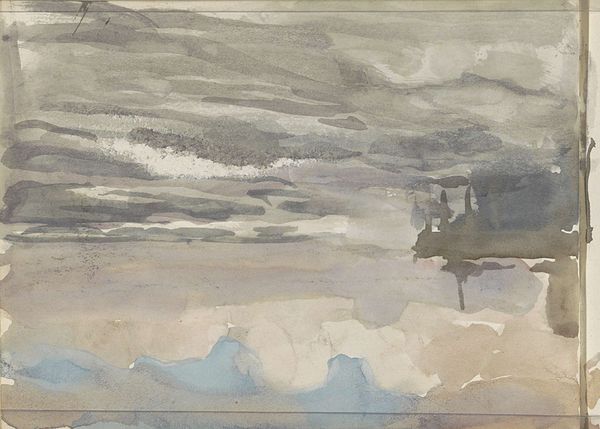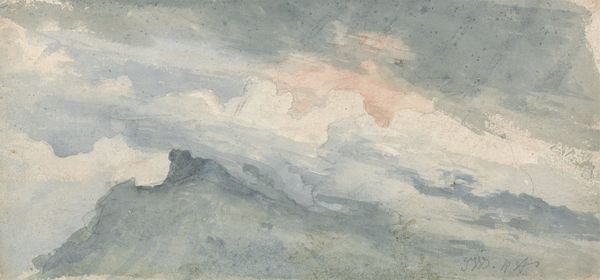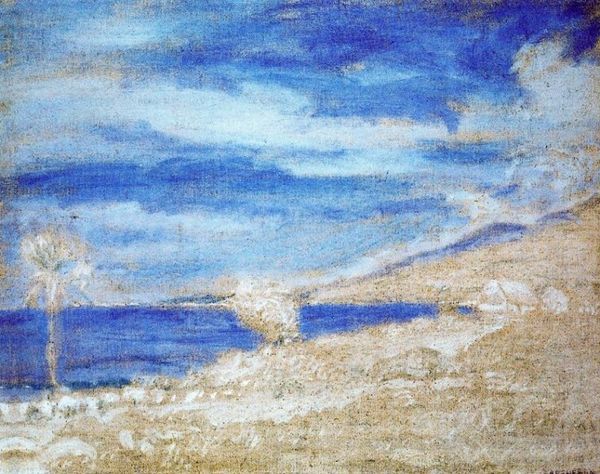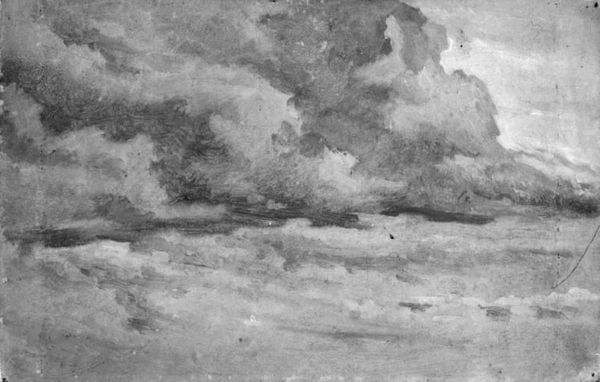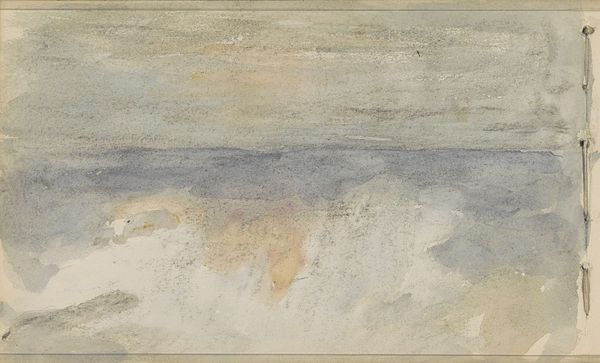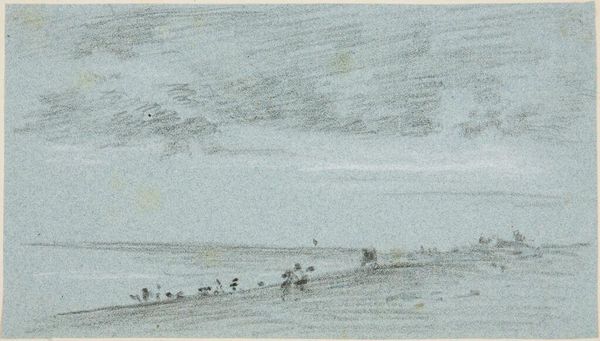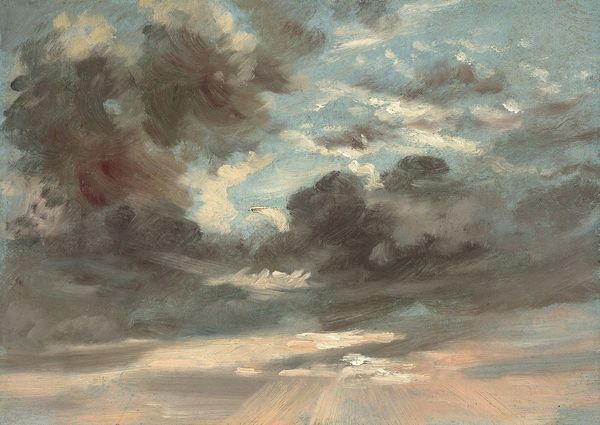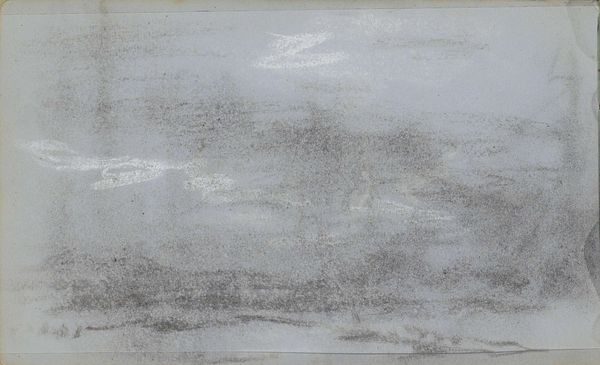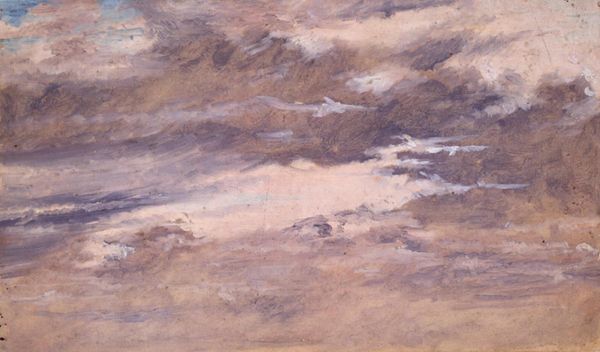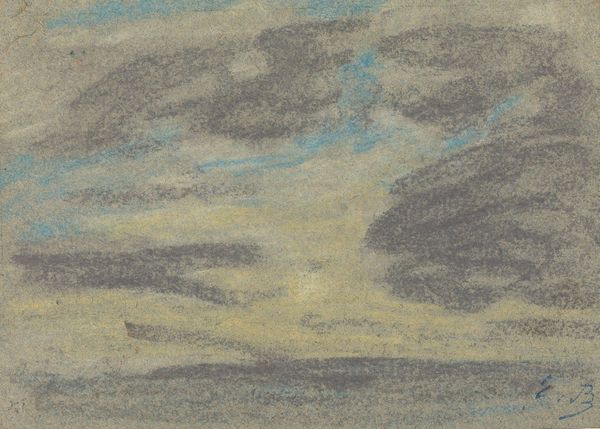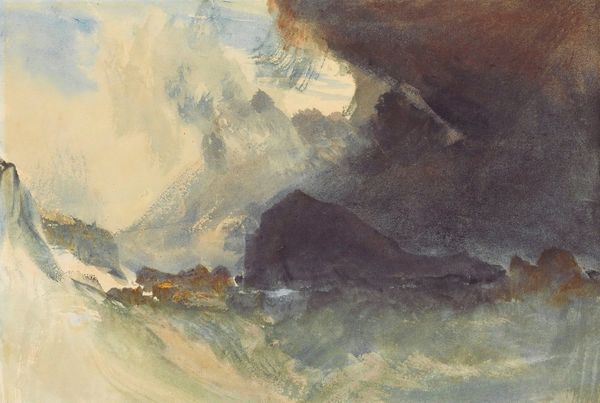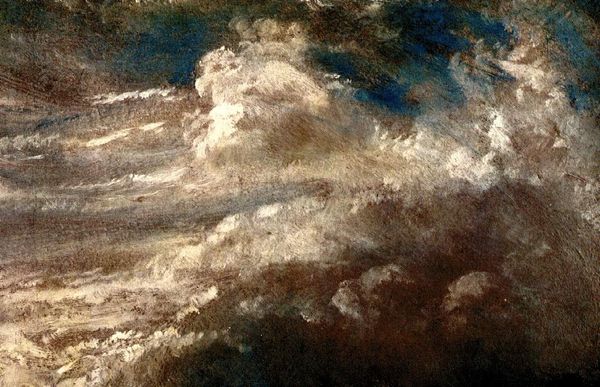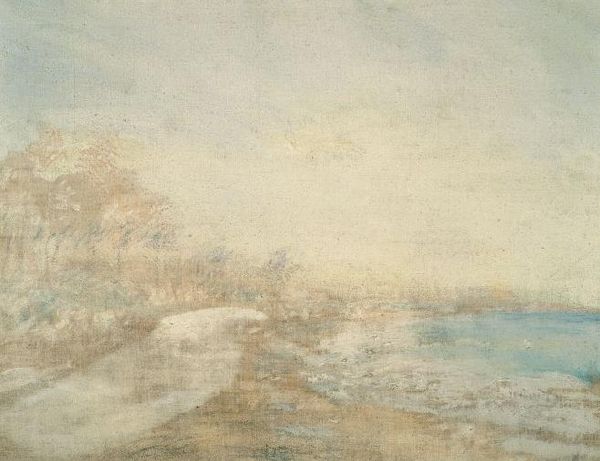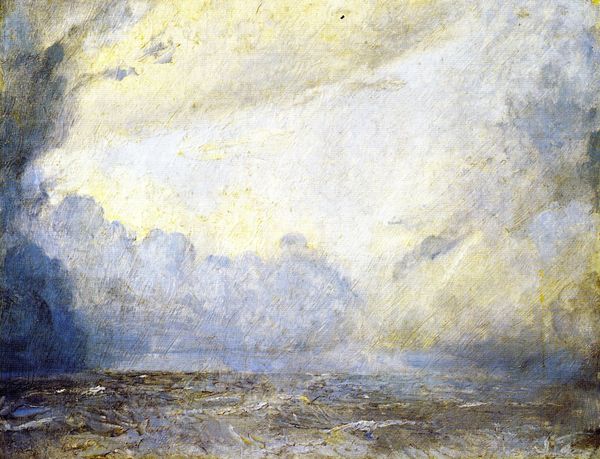
Copyright: Public domain
Curator: Ah, yes, John Ruskin’s “Beauvais,” created in 1854. It's a blend of pen, pencil, and watercolor on paper. Quite small actually, a little study of a grand cathedral city. Editor: Immediately, I'm struck by the mood—almost apocalyptic! The churning sky dominates, doesn't it? A really dramatic, brooding atmosphere for what I assume should be a rather pleasant landscape. Curator: Ruskin always did have a soft spot for the sublime. He was all about finding God in nature, even in a stormy sky. Look at how the light pierces through the clouds; that's no accident. He was acutely aware of how to suggest the divine through the details of the world. It has the most intense light, quite expressive! Editor: And I can't help but think about the social context. Mid-19th century Europe—industrial revolution, class divisions... Maybe that turbulent sky is also reflecting the societal upheaval. He's part of that romantic reaction against industrialisation. Did Ruskin ever reflect on how labor relations related to the actual making of art or how buildings were built? Curator: That's fascinating, how the macro affects the micro, no? Ruskin definitely had his views on labor, his views on art’s moral role within it, often romanticised perhaps. He saw beauty as intrinsically linked to ethical production. Think of his emphasis on the Gothic style, you know the ornamentation and attention to craft as an antidote to the mass-produced. Editor: Absolutely, a loaded claim though. So it brings us back to Ruskin using nature as a stand-in. But how far can we take it before we start to obscure that history of oppression, for which landscapes conveniently stand? We can then discuss representation as always being caught up in these broader systems of knowledge production that always reproduce an imperialist worldview... Curator: I love how we've moved from brooding skies to Ruskin's conflicted relationship with empire so swiftly! It reminds us, you know, art's always both intensely personal and profoundly connected to everything else. Like our own stormy skies are tied up with societal clouds... Editor: I agree; there is no ethical consumption under capitalism! Art in the archive is political. Thanks for taking the ride with me, it was great!
Comments
No comments
Be the first to comment and join the conversation on the ultimate creative platform.
